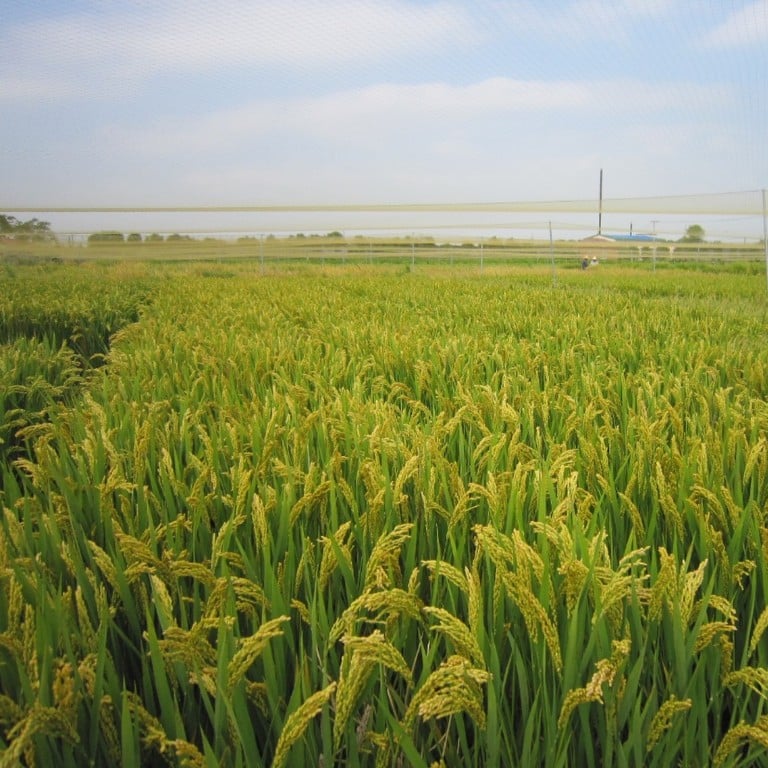
China scientists find a grain of hope in climate change rice research
- Study identifies a pair of genes in the staple that could be tweaked to improve its tolerance to heat stress
- Rising temperatures and extreme weather events are threatening food supplies, with rice particularly susceptible to changing conditions
Tweaking a pair of genes in rice could significantly improve the crop’s heat stress tolerance and increase yield under higher temperatures, according to a new study by Chinese scientists.
Global warming threatens China’s food security, study warns
The study identified the interaction between two genes in rice cells, which the scientists found can enhance the heat tolerance of rice and increase its productivity by 20 per cent in a heatwave. The same genes can be cloned in other major crops, such as maize and wheat, to improve their heat tolerance, they said.
“[The genes] are valuable resources for breeding highly heat stress-tolerant crops to address food security concerns caused by global warming,” according to a statement by the authors of the study, which was led by researchers from the Chinese Academy of Sciences (CAS) and Shanghai Jiao Tong University.
As global temperatures increase, heat stress has become one of the most important factors affecting global food security.
According to a 2017 study published in the Proceedings of the National Academy of Sciences, each degree-Celsius temperature increase will on average reduce global wheat yields by 6 per cent, rice by 3.2 per cent and maize by 7.4 per cent.
At the present rate, the global average temperature may rise by more than 1.5 degrees Celsius compared to pre-industrial levels by 2040, according to the Intergovernmental Panel on Climate Change report last year.
To meet global demand, agriculture would need to produce about 50 per cent more food by 2050, but crop yields could decline by 30 per cent without drastic emissions reduction measures, the Chatham House said in a report in September.
The researchers said the threat of climate change made it critical to find heat-tolerant genes, understand their working mechanisms and breed new varieties of heat-resistant crops.
“During its life cycle, rice is easily influenced by heat stress, and it’s even more vulnerable under global warming,” said corresponding author Lin Hongxuan, who is also a professor at the National Key Laboratory of Plant Molecular Genetics at the CAS.
“Improving the thermal tolerance of rice plays a key role in maintaining and increasing the yield of rice crops under high temperatures, ensuring supply for the food demand of the world population,” he said.
China to feed 80 million with ‘seawater rice’
In a series of experiments with African and Asian rice varieties, Lin and his colleagues found a genetic module in African rice varieties was more heat stress-tolerant compared to Asian rice.
They further discovered that the genetic module TT3 contains two genes that interact together to enhance rice thermotolerance.
Then the researchers cultivated a new rice variety with cloned TT3 from African rice to Asian rice. They found that the new variety’s productivity almost doubled compared to the control group, and the yields increased by 20 per cent in a field during a heatwave.
5 major concerns for China’s food security
“After seven years of effort, we successfully finely mapped and cloned a newly identified thermotolerant rice module, comprising two genes, and revealed a new plant thermotolerant mechanism,” Lin said.
“This study demonstrates that this genetic interaction can enhance the thermotolerance of rice, significantly reduce the yield loss caused by heat stress and maintain the stable yield of rice.”


